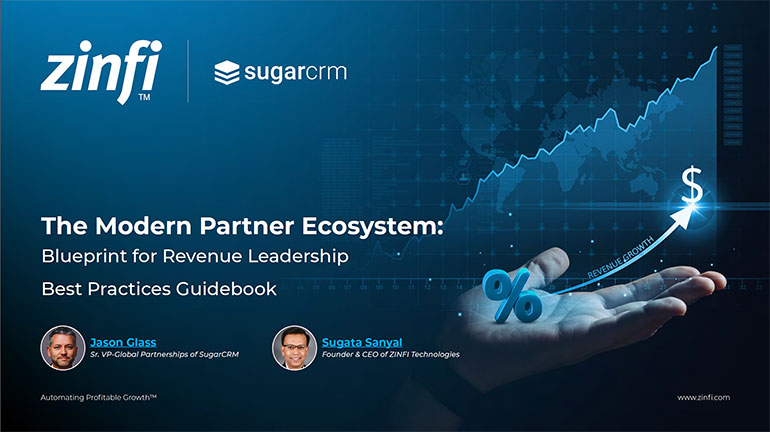Glossary - What is - Ecosystem Intelligence
What is Ecosystem Intelligence?
Ecosystem intelligence is the strategic gathering and analysis of data across a business’s entire ecosystem, including partners, competitors, customers, and market trends. This concept is essential in today’s interconnected business environments, where understanding the dynamics of external relationships and market forces can significantly influence strategic decision-making. Ecosystem intelligence helps businesses anticipate market changes, understand competitor strategies, optimize partner relationships, and tailor offerings to meet customers’ evolving needs.
Regarding partner ecosystem management and partner management automation, ecosystem intelligence plays a pivotal role. It allows companies to harness data-driven insights to enhance the efficiency and effectiveness of their partner networks. Automating the collection and analysis of this intelligence not only speeds up the process but also increases the accuracy and actionable quality of the insights, enabling more informed strategic decisions and better alignment of resources.
Key Takeaways
- Strategic Planning and Decision Making: Ecosystem intelligence provides critical insights that inform strategic planning and decision-making processes. By understanding the strengths and weaknesses within their ecosystem, companies can make more innovative investments and strategic shifts. Automation tools can facilitate real-time data collection and analysis, ensuring that decisions are based on the latest information.
- Competitive Advantage: Understanding the competitive landscape through ecosystem intelligence allows businesses to identify unique opportunities and threats, tailor their offerings, and differentiate themselves in the market. Partner management systems can help track competitor activities and market trends, providing a competitive edge.
- Enhanced Partner Relationships: By leveraging ecosystem intelligence, companies can better understand their partners’ capabilities, needs, and market positions, which aids in fostering more robust, more productive relationships. Automated systems can streamline communication and collaboration, leading to more effective partnerships. Read more on Partner Relationship Management.
- Market Expansion and Customer Alignment: This intelligence helps identify new market opportunities and customer segments. Businesses can use automated tools to efficiently scale their operations into new areas while ensuring their offerings align with customer demands.
- Operational Efficiency: Ecosystem intelligence can optimize operations by identifying the most effective ways to manufacture, distribute, and market products. Automation enhances this process by providing timely and precise data, facilitating operational adjustments that maximize efficiency and reduce costs.
Summary of Takeaways
Ecosystem intelligence is vital for maintaining a competitive edge, enhancing strategic decision-making, fostering strong partner relationships, identifying new market opportunities, and optimizing operational efficiencies. By implementing automation in collecting and analyzing ecosystem data, companies can capitalize on these insights more effectively, ensuring they remain agile and responsive in a rapidly changing market.
Key Examples
- Automotive Manufacturing: Automakers use ecosystem intelligence to understand global supply chain shifts and consumer trends, informing production strategies.
- Consumer Electronics: Companies analyze competitor innovations and consumer preferences to guide product development.
- Energy Production: Firms track regulatory changes and technological advancements to adjust their operations and market strategies.
- Financial Services: Banks and financial institutions monitor economic trends and regulatory changes to align their services.
- Food and Beverage: Producers study consumer trends and supply chain dynamics to optimize product offerings.
- Healthcare Services: Healthcare organizations use ecosystem intelligence to track advancements in medical technology and patient care practices.
- Information Technology: IT companies monitor software and hardware developments and emerging tech trends.
- Pharmaceutical Development: Pharma companies analyze global health trends and regulatory environments to prioritize research and development.
- Retail Industry: Retailers use ecosystem intelligence to track consumer behavior and technological advancements in e-commerce.
- Telecommunications: Companies monitor technology trends and regulatory changes to adjust services and strategies.
Conclusion
Ecosystem intelligence is crucial for businesses seeking to navigate complex global markets effectively. It empowers companies to make informed decisions, tailor strategies, and optimize operations, ultimately leading to sustained competitive advantage and growth. Integrating automation tools enhances the capacity to leverage this intelligence, making businesses more agile and responsive to market dynamics.
Associated Keywords:
- Ecosystem Intelligence In Business
- Competitive Ecosystem Analysis
- Partner Ecosystem Management
- Strategic Market Insights
- Automation In Ecosystem Intelligence















